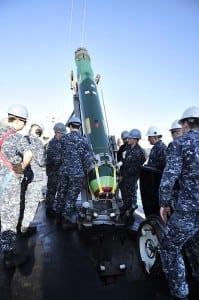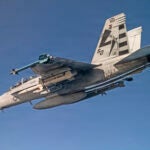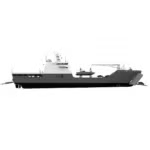
The Office of Naval Research (ONR) is moving ahead with its Torpedo Advanced Propulsion System (TAPS) program as it awarded Aerojet Rocketdyne [AJRD] a $2.6 million Phase I contract to develop a prototype torpedo propulsion system, the company said Tuesday.TAPS aims to improve the engine efficiency of the U.S. Navy’s Mk 48 heavyweight torpedo. According to a Navy factsheet, the torpedo reaches speeds upward of 28 knots with a range of over five miles and reaches depths of 1,200 feet.…

 By
By 










